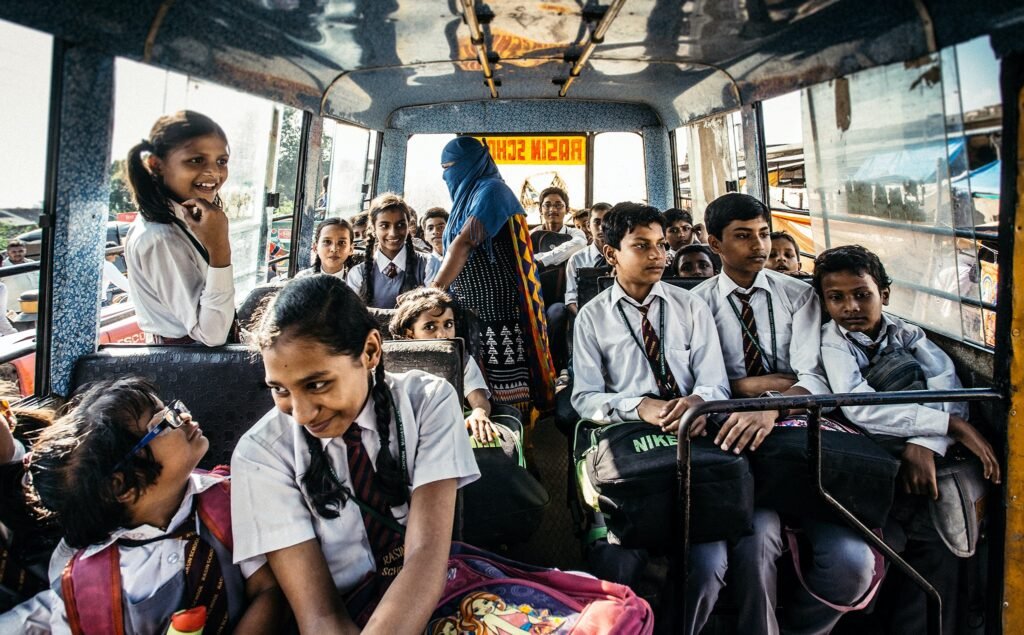
- June 3, 2023
- NGO Partner
- 0 Comments
- 593 Views
- 0 Likes
- Marketing Company Blogs
Cultural And Educational Right in India
Cultural And Educational Rights In India.
Culture and education rights play a vital role in shaping societies, fostering social development, and nurturing individual growth. These rights recognize the inherent value of culture and education as essential aspects of human well-being and dignity. In this blog post, we will delve into the importance of culture and education rights, exploring their significance in promoting a more inclusive and equitable world.

Culture rights are fundamental to preserving and celebrating the diverse cultural heritage of communities. They encompass the right to freely participate in cultural life, practice and preserve cultural traditions, and express one’s cultural identity. Culture rights not only strengthen social cohesion but also promote tolerance, understanding, and respect for different cultures.
Education, on the other hand, is a fundamental human right that empowers individuals, equips them with knowledge and skills, and enables them to reach their full potential. Education rights ensure that everyone, regardless of their background or circumstances, has equal access to quality education.
Education is not only essential for personal development but also crucial for societal progress, economic growth, and the achievement of sustainable development goals. Throughout this blog post, we will explore the intersection of culture and education rights, examine successful initiatives, and discuss strategies for promoting and protecting these rights globally. By understanding the importance of culture and education rights, we can work towards building a more inclusive, enlightened, and prosperous future for all.
Understanding Culture Rights
Definition and significance of culture rights
Culture rights refer to the recognition and protection of individuals’ rights to freely participate in cultural life, practice and express their cultural traditions, and preserve their cultural heritage. These rights are essential for upholding the diversity and richness of human cultures and promoting inclusivity. Culture rights recognize the intrinsic value of cultural expression and provide individuals with the freedom to embrace and celebrate their cultural identity.
Exploring the connection between culture, identity, and human rights
The connection between culture, identity, and human rights is profound. Culture is a fundamental aspect of human identity, shaping how individuals perceive themselves and relate to others. Culture rights recognize that individuals have the right to freely express and practice their cultural beliefs, traditions, and customs. Human rights, including culture rights, acknowledge and protect the importance of personal identity and the right to self-determination.
Highlighting the role of cultural diversity in fostering tolerance and understanding
Cultural diversity plays a crucial role in fostering tolerance and understanding among communities and nations. It is through embracing cultural diversity that we can broaden our perspectives, challenge stereotypes, and cultivate empathy. Cultural diversity encourages the exchange of ideas, promotes dialogue, and fosters mutual respect. By recognizing and respecting culture rights, societies can create an inclusive environment that values and appreciates the richness and contributions of all cultures, leading to greater social cohesion and harmony.
Educational Right as a Fundamental Right
The importance of education as a human right
Education is a fundamental human right that empowers individuals and plays a crucial role in personal and societal development. It provides people with the knowledge, skills, and capabilities necessary for active participation in society and the pursuit of a fulfilling life. Education as a human right ensures equal opportunities for all, regardless of their socioeconomic background, gender, or other characteristics.
Overview of international frameworks and declarations on education rights
International frameworks and declarations have been established to uphold and protect the right to education. The Universal Declaration of Human Rights and the Convention on the Rights of the Child recognize education as a fundamental human right. Additionally, the United Nations Sustainable Development Goals (SDGs) include a specific goal (SDG 4) that focuses on quality education for all, highlighting the global commitment to ensuring access to education.
Examining the impact of education on individuals, communities, and societies
Education has a profound impact on individuals, communities, and societies. It empowers individuals by improving their cognitive abilities, expanding their knowledge base, and enhancing their critical thinking and problem-solving skills. Education also plays a crucial role in reducing poverty, promoting gender equality, fostering social inclusion, and driving economic growth. Furthermore, educated individuals are more likely to be actively engaged citizens, contributing positively to their communities and societies at large. The transformative power of education is undeniable, making it an essential human right.
Intersection of Culture and Education Rights
Exploring the relationship between culture and education rights
The relationship between culture and education rights is intertwined and significant. Culture shapes educational experiences, influences teaching methods, and impacts students’ learning outcomes. Recognizing and respecting culture rights in education ensures that education is culturally relevant, inclusive, and respects the diverse backgrounds and identities of students. Culture and education rights mutually reinforce each other, creating an environment where every individual can thrive.
Addressing cultural barriers to education access and inclusion
Cultural barriers to education access and inclusion pose challenges that need to be addressed. These barriers can include language barriers, discriminatory practices, cultural stereotypes, and lack of representation in educational materials. Overcoming these barriers requires proactive measures such as providing language support, promoting inclusive curriculum development, and fostering a supportive and respectful learning environment that celebrates diversity.
Promoting culturally responsive and inclusive education practices
Promoting culturally responsive and inclusive education practices is essential for ensuring equitable educational opportunities. Culturally responsive education recognizes and values students’ cultural backgrounds, integrating them into teaching practices and curriculum. It encourages dialogue, critical thinking, and understanding of diverse perspectives.
Inclusive education practices go beyond cultural considerations and also address other dimensions of diversity such as gender, ethnicity, and disability. By promoting culturally responsive and inclusive education, we create an environment where every student feels valued and has the opportunity to thrive academically and personally.

Promoting Culture and Education Rights Worldwide
Case studies showcasing successful initiatives promoting culture and education rights
Several case studies demonstrate successful initiatives promoting culture and education rights. One such example is the Indigenous Education Program implemented in Canada, which integrates indigenous culture, history, and language into the curriculum. This initiative has not only improved educational outcomes for indigenous students but also empowered indigenous communities to preserve their cultural heritage and strengthen their identity.
the impact of these initiatives on community empowerment
These initiatives have a profound impact on community empowerment and educational outcomes. They create an environment where students feel a sense of belonging and pride in their cultural identity. By incorporating culturally relevant content and teaching methods, students are more engaged, leading to improved academic performance and retention rates. Moreover, these initiatives empower communities by revitalizing cultural traditions, fostering intergenerational knowledge transfer, and promoting community involvement in education decision-making processes.
Identifying challenges and highlighting strategies for promoting and protecting
While successful initiatives exist, challenges remain in promoting and protecting culture and education rights globally. These challenges include limited resources, cultural biases in educational systems, and resistance to change. Strategies for addressing these challenges include strengthening partnerships between government bodies, NGOs, and community organizations, advocating for policy reforms that prioritize cultural and education rights, and providing training and support to educators on culturally responsive pedagogy. Additionally, raising awareness about the importance of culture and education rights through public campaigns and promoting inclusivity and diversity in educational policies and practices are essential steps in ensuring equitable access to quality education for all.
Empowering Individuals through Culture and Education Rights
Examining the role of culture and education rights in empowering individuals to reach their full potential
Culture and education rights play a pivotal role in empowering individuals to reach their full potential. By recognizing and respecting individuals’ cultural backgrounds, education becomes a tool for self-discovery, self-expression, and personal growth. Culture and education rights provide a nurturing environment where individuals can explore their passions, develop their talents, and gain the knowledge and skills needed to thrive in their personal and professional lives.
Discussing the transformative power of education in fostering critical thinking, creativity, and social mobility
Education holds transformative power, fostering critical thinking, creativity, and social mobility. Through education, individuals learn to analyze information, think independently, and solve complex problems. It cultivates creativity by encouraging curiosity, innovation, and the exploration of new ideas. Moreover, education acts as a catalyst for social mobility, providing individuals with opportunities to break the cycle of poverty, overcome societal barriers, and achieve upward social and economic mobility.
Highlighting the long-term benefits of investing in culture and education rights for individuals, communities, and societies
Investing in culture and education rights yields long-term benefits for individuals, communities, and societies. Empowered individuals become active participants in society, contributing to its social, economic, and cultural development. Communities benefit from a diverse pool of talent, creativity, and knowledge, fostering innovation and growth. At the societal level, investing in culture and education rights leads to greater social cohesion, reduced inequalities, and a more inclusive and progressive society, ultimately creating a foundation for sustainable development and a brighter future for all.
Conclusion
Reinforcing the significance of culture and education rights in fostering inclusive and equitable societies
Culture and education rights are essential for fostering inclusive and equitable societies. They ensure that every individual, regardless of their background, has equal opportunities to access education and participate in cultural life. By upholding these rights, we create a society that values diversity, promotes tolerance, and embraces the richness of different cultures, fostering social cohesion and harmony.
Encouraging readers to advocate for and support initiatives that promote culture and education rights
As readers, we can play an active role in advocating for and supporting initiatives that promote culture and education rights. By raising awareness, engaging in dialogue, and supporting organizations working in this field, we can contribute to the advancement of inclusive and equitable education systems and the preservation of cultural heritage. Together, we can create a collective voice that emphasizes the importance of these rights and encourages policymakers and stakeholders to prioritize their implementation.
Final thoughts on the transformative potential of culture and education in shaping a better future for all
Culture and education have the transformative potential to shape a better future for all. When culture and education rights are safeguarded and nurtured, they become powerful tools for personal and societal development. They empower individuals to challenge stereotypes, broaden their perspectives, and contribute meaningfully to their communities. By embracing culture and education, we can create a world where everyone has the opportunity to thrive, fostering a more just, enlightened, and prosperous future.
Related: What is Parliament of India




Leave a Comment